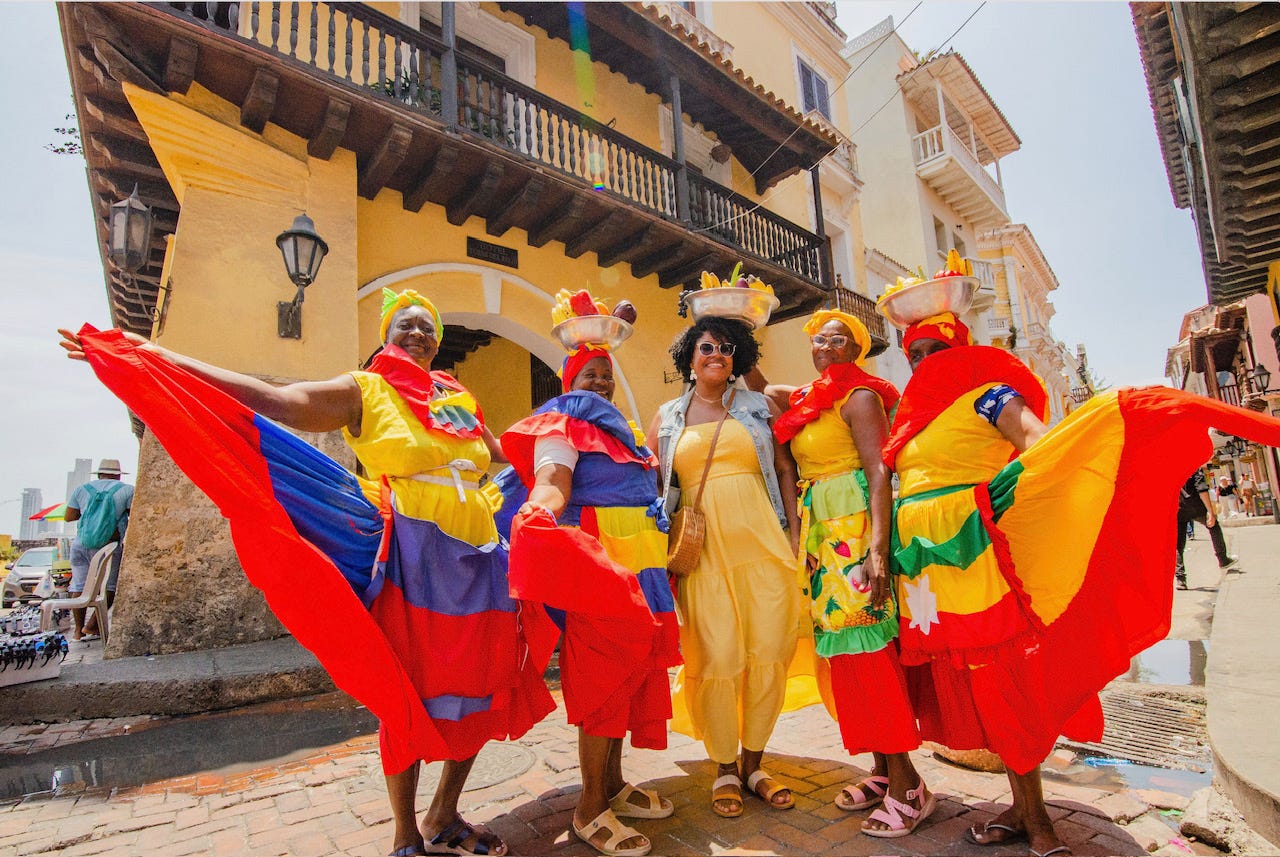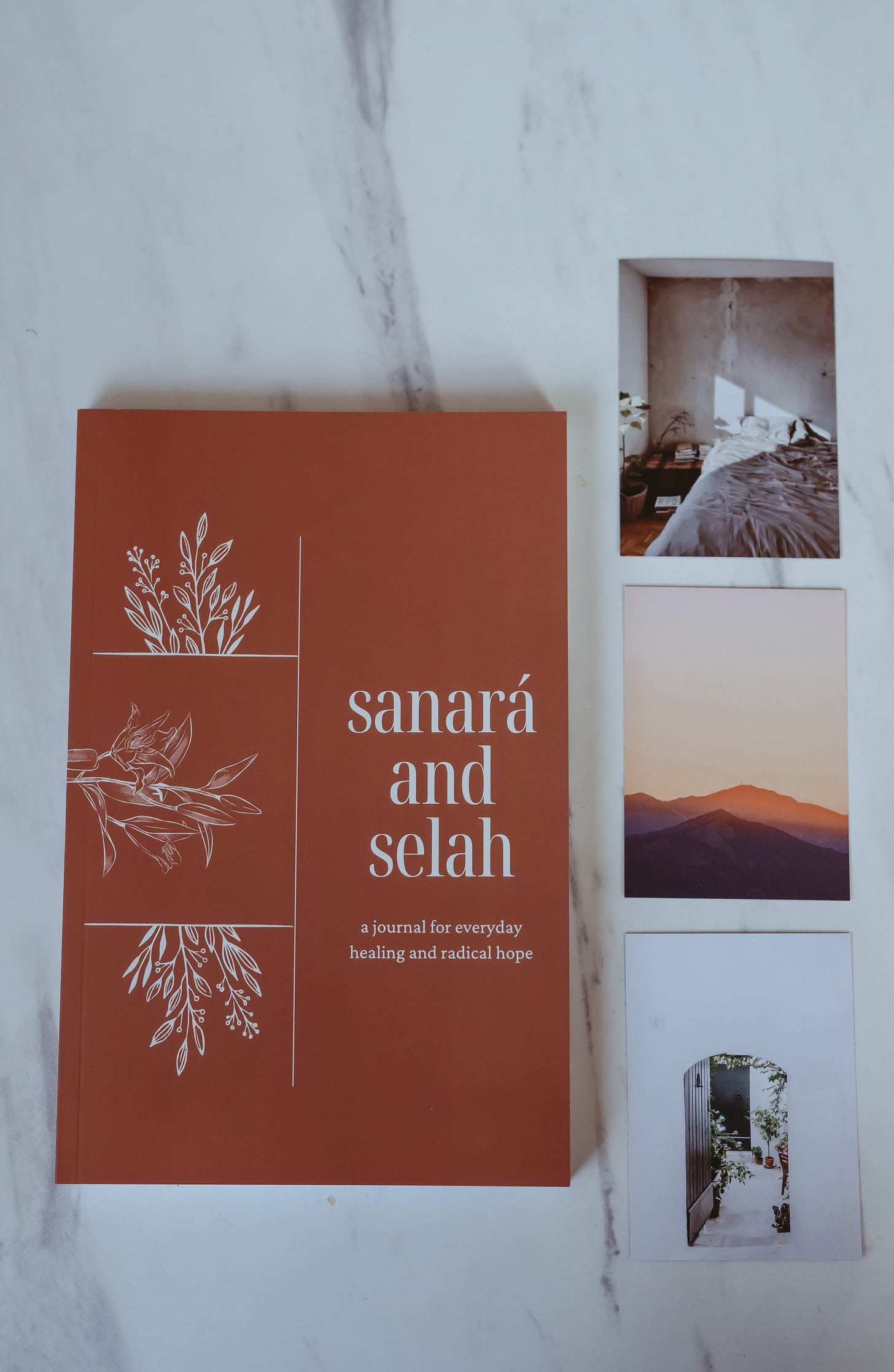Hola, me llamo Pricelis. Yes, I speak Spanish. It was actually my first language before I learned English, Spanglish, Christianese, and Hood English. It’s the language of my colonizer while it’s also the language of my people. It’s complicated like that.
But speaking Spanish is not the only thing that makes up Latin America (especially since people also speak Dutch, Portuguese, and more languages there). There are many Latinos/as that don’t speak Spanish. This doesn’t mean they aren’t Latino/a. What makes us this is our culture, music, history, ancestry, food, traditions, people, revolutions, story, progression, and land.
For those of us born in the United States of America - we can often feel we aren’t really Americans to Americans. And when visiting Latin America, we aren’t really Latino/a, instead we are gringos or americanos. Sometimes it can feel as if we have no home or at least no place we are fully accepted for who we are. So one would hope, out of all the places in the world where we could certainly feel welcomed is the Church….
But that’s not always the case either.
It’s not that we necessarily don’t feel welcomed but the absence of our culture, representation, and contribution to the Church feels overlooked, forgotten, or tokenized within the American Church.
I grew up going to two Churches. The first one was West End Presbyterian Church - where most of my pastors growing up were Latina women. There was Helen - who was Boricua and Amy who was Peruana. Even now, there current Pastor is a Latina called Noreen Santos. The neighborhood the Church resides in has changed drastically due to colonization….I mean gentrification :) but the Church remains committed to what they’ve been doing all along. Having representation be prevalent. This is not to say People of Color can’t have White Pastors. The lead pastor of that church while I was growing up was a White man from Scotland, Pastor Drummond - who I loved dearly. But do you want to know something about him? He spoke fluent Spanish. He didn’t expect all the recently arrived immigrants a part of that congregation and community to immediately learn Spanish and he also wanted to give these people the gospel in their native tongue. So yes, he would preach whole sermons in Spanish.
Then there’s my other Church that I attended as a teen, which is where I met my now husband. I’m not going to name this Church because I didn’t necessarily have a good experience there but there I also experienced both men and women who were Latino/a pastors, ministers, and preachers.
This was the world I was surrounded by and the only thing I knew about Church. Diversity in Pastors but also Pastors who understood their community well and wanted to TRULY meet them as they are. Although, they didn’t use this language back then - the term ‘come as you are’ was felt, even if it wasn’t said.
Now, as I’m close to turning 34 and having worked in two Churches in the most diverse city in the world - I find myself in a confused and discouraged state.
Since coming back to Jesus and the Church 10 years ago, I have been to several conferences, have read many Christian books, listened to various podcasts, and visited a good amoutn of churches - and I can tell you a lot from my reflections but something that has been sitting in my mind for the past year or so with deep frustration is the Church’s erasure of Latino/a, Indigenous, and AAPI (Asian Americans and Pacific Islands) people.
Latinos/as are barely considered or thought of when it comes to publishing books, guest speaking on podcasts, and getting pastor positions or any position at a Church.
When this does (RARELY) happen, it’s likely to happen in settings like my upbringing - in a community that’s dominantly Latino. But let’s look at the example of New York City - 28.9% of the population here (in the 5 boroughs) is Latino/a. Having worked in Churches in New York City and being a native New Yorker, I know of many Churches in New York City. And I can count on one hand the number of them that have a Latin/ao on their staff, let alone a Latino/a as their Pastor. This is actually both the case in pre-dominnantly Latino/a neighborhoods and non-Latino/a neighborhoods.
For example, Harlem is a historically African American neighborhood but throughout the past decades, because of immigration arrival and gentrification, that has changed. Currently, Harlem is 43% Black (which can also account for Latinos who identify as Black - like me), 32% Latino, and 17% White (data taken from - www.niche.com/places-to-live/n/harlem-new-york-city-ny/residents/) but majority of Churches in Harlem have staff that are either White or Black (non-Latino Black people). And If I had the time, I’d also talk about Latino/a worship music - but that’ll have to be for another day….
So what am I really trying to communicate in all of this?
We are branding the Body of Christ to look and sound one way, omitting many other voices and faces in the process. We are forgetting people. Not just for representation but because they too have voices, thoughts, input, and gifts. Because they too are a part of the Body of Christ. Because they too are here.
People who are Latinos/as, Indigenous, and AAPI.
People with disabilities and who are neurodivergent.
People who are experiencing homelessness.
People of the older generation.
People who socioeconomically have to work on Sundays and can’t make it to a service.
In many ways, this is the result of colonization and white supremacy. It’s ‘othering’ and hierarchies. It’s a narrative that feeds to the trending rage. It’s a tale as old as time. But one we should be so tired of that we choose to shift it.
I know this narrative too well. I’m often the only Latina in many Christian rooms. But perhaps it’s because of that - because we are creating rooms instead of casitas (house in Spanish). Casitas with open windows and doors where people can come to the house of God and see themselves.
It’s currently Hispanic/Latino/a Heritage month but it’ll be ending in just a few days and here’s what we get to do:
Pay attention to the spaces, Churches, podcasts, events, and ministries that had a Latino/a come to preach, teach, in the past 30 days but you can’t recall the last time you saw them invite a Latino/a before this.
Contact conferences that you see a lack in diversity speaker line up and invite them to consider why they don’t have Latinos/as, Indigenous people, and/or Asian people in their speaker line up - and give them encouragement on how to change that.
Buy books by authors of Color and PRE-ORDER them too
If your church has never or hasn’t recently had a Latino/a person come preach - ask your Church why not and encourage them to do it (by perhaps also helping them find someone - maybe it’s someone from your own congregation)
Intentionally seek to learn from Latino/a Christian leaders, speakers, authors, podcasters, pastors, advocates, writers, creators, ministry leaders, etc.
All these things apply to the other groups of people I mentioned as well that are often forgotten in our Churches. Let’s be a Body that doesn’t overlook anyone and doesn’t go with a wave but that is guided by the Spirit of the Living God.
with lots of your love,
your Latina sister in Christ - Pricelis Dominguez
CHECK THIS OUT….
this NEW journal I created - as well as a few more products with spanish words on them will be available at my online shop re-launch! From October 22nd to October 29th! SAVE THE DATES!
p.s. if you don’t know where to start with learning from Latinos/as - here are some folks/ministries:
Latino/a Authors
Karen Gonzalez
Justo Gonzalez
Robert Chao Romero
Kat Armas
Kristel Acevedo
Alexandra Hoover
Sandra Van Opstal
Rich Villodas
Latino/a Preachers and Pastors
Sandra Van Opstal (Chasing Justice)
Lydia Lucas (Latinas Loving Jesus and City Relief)
Rich Villodas (Pastor at New Life Fellowship Church)
Ivette Valdez (Latinas Loving Jesus)
Giselle Flores (Assemblies of God Northeast Youth Director)
Ariana Rivera (Latinas Loving Jesus)
Joy Holmes (Renovation City Church - Church Planter)
Latino/a Worship
Kairo Worship
Maverick City Musica
Gabriel DeJesus
Blanca
Averly Morillo
Jesus Adrian Romero
Marcos Witt





